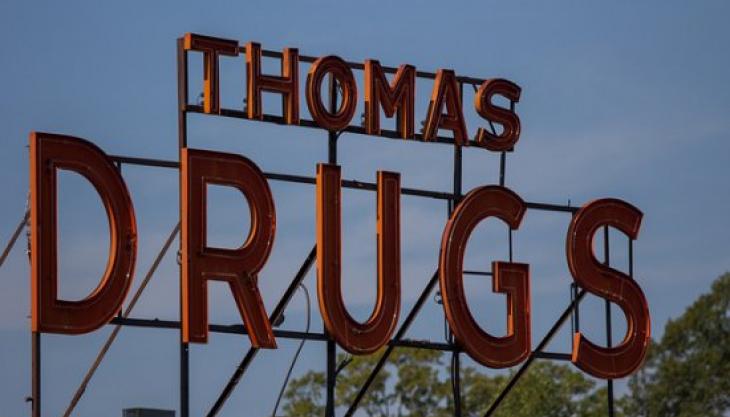4 Ways to Keep Your Prescription Medication Costs from Causing Financial Disaster
Submitted by Rachel R on Mon, 06/02/2014 - 1:13pm

Prescription drug assistance may be available to help you with your medication costs
Image source: Flickr Creative Commons user Kathy Sunderman
We've written here before that more than half of bankruptcies and serious financial circumstances are caused by medical costs and chief among these is unmanageable prescription medication costs. Even with the onset of the Affordable Care Act, prescription drug costs are high and rising. This unfortunate situation is made worse if you're on a fixed income or have a chronic condition that requires ongoing (and costly) medications such as a heart condition, high blood pressure, diabetes. These costs are so onerous that roughly 50 million people each year go without needed medication. If you're struggling to pay for your medications, here are a few tips to help safeguard your health and wallet.
#1 Don't Pay for Your Medication with a Credit Card
You may not think you have any other alternative than to charge your prescriptions on a credit card, but this is a recipe for disaster. If you can't pay your balance off in full each month, the cost of interest alone adds 25% to your drug costs. And if you max out your cards and interest piles on interest and late fees accrue, you could end up with a bill that can be several times more than the initial cost of your medication.
#2 Appeal to Your Insurance Company and Physician
Insurance companies seem to be in the business of saying no and doctors often write prescriptions for medications they've been given samples of or that are heavily promoted to them rather than what's the lowest cost option for you. If your medications are unaffordable, first go to your doctor with your insurance plan's drug list and ask for an equivalent product that your insurance covers or at least covers without such a hefty co-pay.
If there is no cheaper alternative, appeal to your insurance company to expand their coverage for the medication you can't do without. If you want to double check the medication selection your doctor has made, talk to your pharmacist – they know much more about insurance and pricing than doctors and have intimate knowledge of drug equivalencies and generics – plus, they won't charge you a co-pay or fee to share their knowledge.
#3 Appeal to the Prescription Drug Manufacturer
Many drug manufacturers offer programs that give substantial discounts on, or offer free, lifesaving drugs to cash-strapped patients that need their medications. PhRMA, the coalition of Pharmaceutical Research and Manufacturers of America, has launched an initiative called the Partnership for Prescription Assistance that “connects qualified, low-income people with discount prescription drugs, direct from the pharmaceutical manufacturer.” Click here for the North Carolina portal to see if you qualify for assistance.
#4 Check Out North Carolina Medication Assistance Programs
There are also a number of North Carolina specific programs to help patients afford their prescription medications. These are all worth checking into – the time you spend online researching and making calls for assistance may add up to significant savings each month for you. NC MedAssist operates as a community pharmacy to low-income and fixed-income consumers in our state and may be able to help you reduce your medication costs.
Our state's Department of Health and Human Services offers assistance and information on medications that are needed for mental health and substance abuse conditions. They offer data sheets showing what the comparative costs for your meds are at different local pharmacies. They also recommend trying the Community Assistance Program, which allows you to print a discount card to use if you're uninsured. Finally, they suggest trying another private card program – the North Carolina Drug Card – to look for better deals.
If your medical bills and prescription costs have piled up along with other unsecured debt so that you're forced to make choices that put your health at risk, bankruptcy may be a viable solution for you. Contact the law offices of John T Orcutt to find out how your finances may improve if your medical bills, credit card debt and other unsecured debt is cleared out of your life for good. Call today for a free consultation.
Debts Hurt! Got debt? Need help? Get started below!
Serving All of North Carolina
- Bankruptcy Attorneys Raleigh NC (North)
- Bankruptcy Attorney Fayetteville NC
- Bankruptcy Attorney Durham NC
- Bankruptcy Attorneys Wilson NC
- Bankruptcy Attorneys Greensboro NC
- Bankruptcy Attorneys Southport NC
- Bankruptcy Attorneys Wilmington NC
Bankruptcy Attorneys Raleigh NC (North)
6616 Six Forks Rd #203 Raleigh, NC 27615 North Carolina
Tel: (919) 847-9750

Bankruptcy Attorney Fayetteville NC
2711 Breezewood Ave Fayetteville, NC 28303 North Carolina
Tel: (910) 323-2972

Bankruptcy Attorney Durham NC
1738 Hillandale Rd Suite D Durham, NC 27705 North Carolina
Tel: (919) 286-1695


Bankruptcy Attorneys Greensboro NC
2100 W Cornwallis Dr. STE O Greensboro, NC 27408 North Carolina
Tel: (336) 542-5993

Bankruptcy Attorneys Southport NC
116 N Howe St. Suite A Southport, NC 28461 North Carolina
Tel: (910) 218-8682

Bankruptcy Attorneys Wilmington NC
116 N. Howe Street, Suite A Southport, NC 28461 North Carolina
Tel: (910) 447-2987
